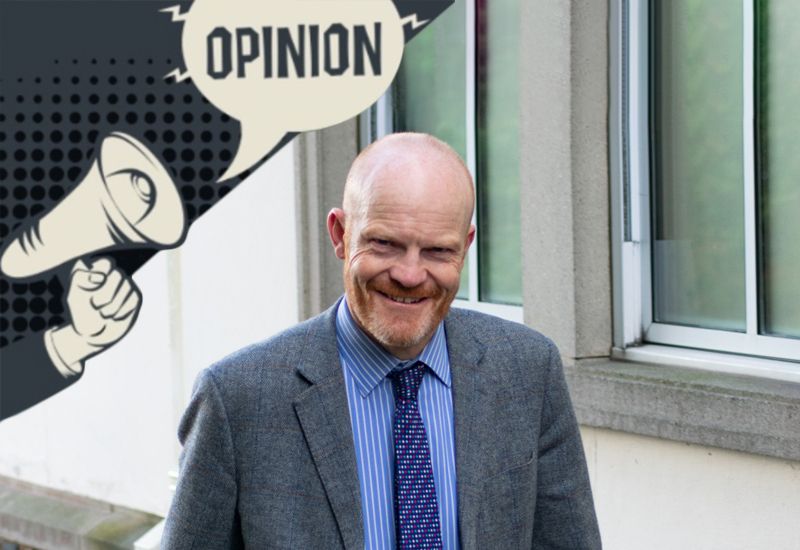


Forget the detail. It’s the Big Picture from the early July States’ meeting that’s more interesting. It was confirmed that the tsunami that overwhelmed the Committee for Education, Sports & Culture a couple of weeks ago, forcing them to withdraw their policy letter on the Education Law Review, was caused not merely by an earthquake, but by tectonic plates that have shifted in the Assembly.
This fact emerged during the debate on the Policy & Resources Committee’s (P&R) policy letter on East Coast Development.
The policy letter was not the best piece of drafting to emerge from the civil service. The three simple propositions were not particularly substantive or controversial. One approved the three members of the proposed Guernsey Development Agency. The second provided approval to some very high level development objectives and principles. The third was procedural, approving the terms of reference for something new, called the Political Oversight Group, that is intended to provide political governance of the Agency.

Pictured: P&R faced amendments against its east coast plans.
It is not that unusual for amendments to emerge during debate but normally they’d be a few lodged before the meeting begins, indicating areas of members’ concern.
Amendments laid during the meeting always face a headwind in that they are subject to an obvious criticism that they are ‘late’, or ‘on the hoof’, without the opportunity for effective consultation with interested parties. In this case, five emerged after debate had begun.
The reason this happened is because once debate had started, it became clear quite quickly that members weren’t very happy with the lack of progress on development of the east coast. The absence of action flowed directly from the Assembly’s decision back in June 2021 to torpedo the States’ Trading Supervisory Board’s proposals to approve any plan for the future of the harbours. At that meeting, P&R were clearly directed to pick the issue up and return with options. But in this policy letter, they’d slipped in that this particular piece of work had been kicked into the next term.
Clearly, this set alarm bells ringing for members.
This was reflected in Deputy Burford’s amendments which she described as ‘belt and braces.’ These amendments require that transfers of land to, or longer leases made by the Development Agency, be approved by the Assembly. Both amendments received substantial support, despite the existence of an extant resolution from June 2021 that theoretically had the issues covered. Perhaps emboldened by this success, other amendments emerged. One which directed P&R to include provision for surveying the east coast in preparation for a decision on future harbour requirements. And another which directed P&R to get on and do the work this term that they had kicked into the next term.

Pictured: Deputy Burford lodged amendments against the east coast development plans.
In essence, the Assembly was collectively telling P&R, ‘we are unhappy with the pace of progress and the failure to prioritise this issue.’ The sense of exasperation from P&R members was palpable, particularly Deputy Murray, who is now responsible for the Government Work Plan. His message that the States doesn’t have the funding or other resources to progress this issue in the timescale the States wanted, simply fell on stony ground.
For the senior committee to lose so heavily having argued so strongly against a position is unusual. It is a reaffirmation, after the January/February tax review debacle, that P&R are no longer leading the States but are following it. What is most extraordinary, though, is a feeling, a sense that no-one actually thinks P&R will take the blindest bit of notice. The expectation is the resolutions will most likely be ignored, other than they will used to bolster the narrative being weaved ahead of September’s capital and funding debate that, ‘if you, the rest of the States, want to keep doing all of these things, then we, P&R, will have no choice but to re-present our GST-led tax package as the only way to fund them all.’ The political strategy is simple, it seems - to bludgeon the Assembly into approving P&R’s tax package as the only viable solution, even though the Assembly have made clear they do not believe that to be the case.
Deputy Murray did manage to exact some kind of pyrrhic victory by securing a narrow win for his sursis to stop debate on the Electricity Strategy until September. His argument that it needed to be considered in the round with the Government Work Plan was not well founded on the facts, given the propositions in the Electricity Strategy, but no matter. It is ironic that the man who joined P&R after Deputy Soulsby’s resignation to inject vision and energy into ensuring government action, was the same man torpedoing a clearly articulated and presented vision, reinforcing the moniker of this Assembly as the States of Inaction.
When the States gathers in September to pick up debate on the Electricity Strategy and pick over the detail of P&R’s capital and funding plan, the Big Picture is that those debates will be taking place against a backdrop of P&R’s authority to lead having drained away from the committee. The tectonic plates have shifted and they are not going to shift back.